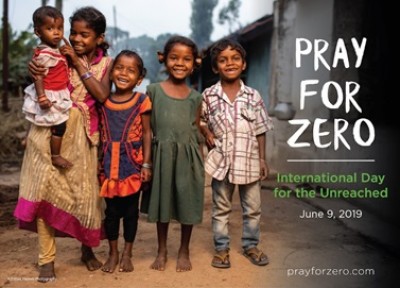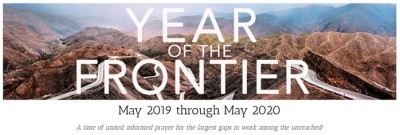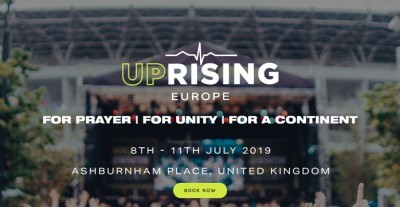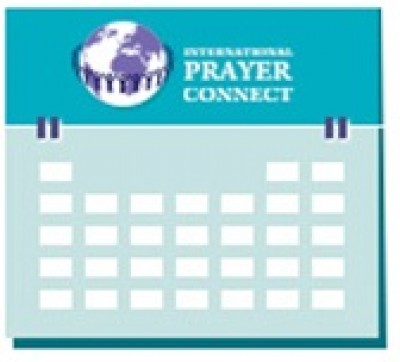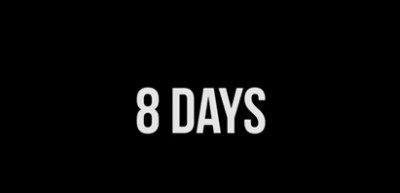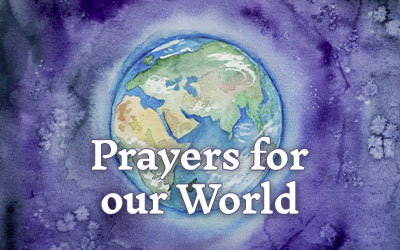Dr Jason Hubbard, Director of the Light of the World Prayer Center in Whatcom County, Washington State, USA tells us about how God is answering prayers for Community Transformation in extraordinary ways.
Their 3 fold prayer strategy involves 30 churches taking a day of prayer, once a month. Its like a prayer relay, where a church takes the baton to pray for a day, then passes the baton to the next church. This means they have ongoing, unceasing prayer.
Secondly, Godly men and women gather together in 7 strategic teams seeking the Father’s will for seeing transformation taking place in their community across the seven spheres of society.
Thirdly, they have build a communications system with a prayer guide conveying specific, measurable prayer points. Alongside this, they prepare praise reports with details of answered prayers.
The result is a canopy of united, strategic, sustained prayer.
Jason tells us how 80 of the 100 local Pastors regularly gather to pray – with the outcome of deeper expressions of unity between the churches, a growing Church, impacts in the marketplace, the community, mission and much more!
Watch the video here (14:40): https://vimeo.com/334628060?utm_source=email&utm_medium=vimeo-cliptranscode-201504&utm_campaign=29220
More: www.lowpc.org
As we approach Pentecost Sunday, June 9th, 2019, let’s ask the Lord Jesus for a fresh ‘infilling’ of the person and presence of the Holy Spirit. One of the keys to a powerful intercessory prayer life is ‘praying in the Spirit.’ Dutch Sheets states boldly, “Without a doubt the greatest single key to successful intercession is learning to co-operate with the Holy Spirit allowing him to be all he was sent to be in us!”
As John the Baptist stated,
“This is he of whom I said, ‘After me comes a man who ranks before me, because he was before me.’ 31 I myself did not know him, but for this purpose I came baptizing with water, that he might be revealed to Israel.” 32 And John bore witness: “I saw the Spirit descend from heaven like a dove, and it remained on him. 33 I myself did not know him, but he who sent me to baptize with water said to me, ‘He on whom you see the Spirit descend and remain, this is he who baptizes in and with the Holy Spirit.” (John 1:30-33)
God-the-Son in our flesh who comes to take away the sin of the world, is also the One who comes to baptize in and with the Holy Spirit. The two works belong together. When these two titles are kept together the gospel is really ‘good news.’ Jesus-to-the-rescue takes away sin, and then baptizes humans in and with the Spirit of God.
The term baptize simply means to ‘immerse.’ The Greek text uses both ‘in’ and ‘with,’ the Holy Spirit. The ’in’ relates to that which we are immersed into, and the ‘with’ speaks of that which saturates us or literally, overwhelms us. Therefore, Jesus the Baptist dunks us in and drenches us with the very life of the Triune God!
Dallas Willard uses the word ‘engulfment’ to describe this experience. Jesus promises an engulfment in the Spirit of God. He promises to clothe us, or dress us with ‘power from on High.’ Jesus of Nazareth, God-in-flesh, redeems us from the power and grip of sin and then baptizes us, immerses us, soaks us, dresses us, saturates us, drenches us, and marinates us with the very Life of the Living God!
When the text says that Jesus ‘baptizes,’ it is in the present tense. In New Testament Greek the tenses of verbs speak of the time of action and the kind of action. The ‘present’ tense speaks of continuous action, literally ‘to keep on.’ Jesus is the one who keeps on baptizing in and with the Holy Spirit. In other words, He comes to keep on soaking us, keep on drenching us, keep on immersing us, keep on filling us with the Holy Spirit, until every fiber of our being radiates with the very presence of the Living God!
We see this confirmed in the story of the early church! Jesus promises, “in a few days you will be baptized in and with the Holy Spirit not many days from now” (Acts 1:5). On the day of Pentecost, ‘they were all filled with the Holy Spirit”(Acts 2:4). And then a few chapters later in Acts 4:31, the text says, “the place where they had gathered together was shaken, and they were all filled with the Holy Spirit” (Acts 4:31).
Paul says that it is God’s will that we ‘be filled with the Spirit.’ Not just once, twice, but over and over again!
“Therefore do not be foolish, but understand what the will of the Lord is. 18 And do not get drunk with wine, for that is debauchery, but be filled with the Spirit,” (Eph. 5:17-18)
Whereas wine can ruin one’s judgment leading to debauchery, in contrast ‘being filled with the Spirit,’ leads to empowerment, self-control and a life exhibiting the fruits of the Holy Spirit! It is the nature of Jesus to keep on giving his life to us. He fills us and keeps on filling us in stages, ‘grace upon grace’ as John puts it, transforming us from, ‘glory to glory’ as Paul teaches us (2 Cor. 3:18).
Barriers
I believe there are two common reasons why many do not experience the fullness of the Spirit in their lives. The first is fear. We fear that if we really open up to Spirit we might be swept up into something beyond our control. The fact it is, Jesus is beyond our control. We are talking about the Living Lord Jesus coming to occupy and possess us by the Holy Spirit! Out of fear we can settle for a form of religion devoid of power. We try to domesticate the One who is an All-Consuming Fire and settle for the predictable even if it is no longer satisfying.
The second reason is the lack of hunger. We think we have all we need. We are content with what God has done for us, and we no longer come to God desperately needy and poor in Spirit.
However, the reality is that we need the life of God ever-increasing, ever flowing like a river out of our innermost being (John 7:37-39). We need to come more and more under the sway and influence of the Holy Spirit!
We need to be invaded, and permeated, saturated, and flooded with the life of the Spirit in every aspect of our lives! From the very beginning, God has revealed his passion to give his Very Self to the world.
The Holy One intends to fill the whole created order with his Glory! The filling of the Holy Spirit makes fully alive, fully human! We are finally what we were created to be when filled with and animated by the life of the Triune God!
In Luke 11, Jesus writes,
“And I tell you, ask, and it will be given to you; seek, and you will find; knock, and it will be opened to you. For everyone who asks receives, and the one who seeks finds, and to the one who knocks it will be opened. What father among you, if his son asks for a fish, will instead of a fish give him a serpent; or if he asks for an egg, will give him a scorpion? If you then, who are evil, know how to give good gifts to your children, how much more will the heavenly Father give the Holy Spirit to those who ask him!”
The Father is a good father and gives good gifts to his children. In our life of prayer we come to him in dependence recognizing we can’t do anything apart from Jesus.
We need HELP! As Alvin VanderGriend states, “The Father is in the prayer-assistance business. He has appointed his Son, Jesus to be our enthroned prayer assistant, and his Holy Spirit to be our indwelling prayer assistant.” Jesus is telling us to ask and keep on asking, seek and keep on seeking, knock and keep on knocking for the great Helper, the third person of the Trinity!
So this Jesus comes as a Lamb- to- the- rescue to take away the sin of the world. And He comes to baptize again and again and again in and with the Holy Spirit. And whenever he does “there enters into our helplessness and fatigue, ‘a surge of new life,’ and we are freshly empowered, “to do the undoable, to face the un-faceable, to bear the unbearable.” (William Barclay)
Let’s return to the Holy Spirit, turning away from our own works to a total dependence on the Holy Spirit!
Dr Jason Hubbard - Executive Coordinator
International Prayer Connect
We live in a historical time. Every single people group can be reached with God’s Word and kingdom within the next decade. Millions are still waiting to have access to the Gospel. What is Jesus calling us to do?
Well, there is one thing that we have seen God use over and over again to accomplish His eternal purposes: prayer. This upcoming Pentecost, God is uniting the international body of Christ to refocus on what matters. The unreached. Hundreds of like-minded ministries and thousands of churches are united under the Pray for ZERO banner so the unreached are no longer waiting.
Pray for Zero is an international prayer movement dedicated to the provision of God’s Word and kingdom among the remaining unreached, Bibleless peoples. There are currently over 2,000 people groups without access to any Scripture in their language. Through social media and regional prayer gatherings, we connect God’s people to the goal of seeing all remaining translation projects started within this next decade.
You are invited to unite with millions of others to pray for the number of unreached people groups to be brought down to ZERO. Each year we will gather to pray until we live in a world where every single person has access to the Word of God in their language and a local expression of the body of Christ.
If we love those still waiting for a chance to hear of Christ through His Word, then we should do whatever we can to raise awareness so that others will join us in this effort. We encourage you to adopt a people group, pray for them frequently, and post pictures and videos on the International Day for the Unreached — June 9, 2019.
Take a stand. Do your part. Pray for Zero. Visit prayforzero.com.
“Always pray and never give up.” Luke 18b (NLT)
Solomon Lujan
YEAR OF THE FRONTIER May 2019 through May 2020 is a previously unprecedented time of united, informed prayer for the largest gaps in work among the unreached around the world! For thirteen months starting May 2019, join prayer networks around the world coordinating with:
- The Alliance for the Unreached
- The Ethné Movement
- The 24:14 Coalition
- Joshua Project's "Unreached of the Day" (http://JoshuaProject.net/pray/unreachedoftheday)
- Frontier Venture's Global Prayer Digest
as well as many others to pray for every one of the 400 Frontier People Groups (FPGs) with an in-country population over 500,000 as field efforts collaborate to see movements to Christ in every people and place.
What are Frontier People Groups? These FPGs contain nearly all of the one-quarter of all humanity currently the most isolated from the good news that Jesus came for all peoples. Less than 1 in 1,000 are followers of Jesus in these groups. Only 1 out of every 100 cross-cultural laborers work among these groups! Until Jesus followers unite in obeying His commission, these masses have no hope of hearing about and being introduced to Jesus before they die! This unprecedented collaboration will focus on the fulfilment of God's promise to bless all peoples through Jesus movements healing and restoring broken families and communities.
Why is prayer important? Extraordinary prayer is foundational to every movement to Christ. Prayer is the first domino to fall leading to change in spiritual receptivity to the gospel and fruitfulness. Leviticus 26:8 “Five of you will chase a hundred, and a hundred of you will chase ten thousand…”—there is multiplied power in agreement. As intercessors faithfully lift up these specific people groups and believers reach out, God does what only God can do to release harvest.
Learn more about the "Year of the Frontier" at: http://Go31.org/yof
Joshua Project https://joshuaproject.net/frontier
“Reaching the Unreached” video https://vimeo.com/244739881 and
“The State of the World”video https://globalprn.us5.list-manage.com/track/click?u=b371ecb81ea5dd83cb1ed45cd&id=b68ef93f6a&e=3ba0399bc5
Your prayers are vital to extending God's blessing in Jesus to all the remaining Frontier People Groups.
Draw close to God by embracing His passion to bless these Frontier People Groups. Invite others to join you in:
* Praying daily for every one of these 400 Frontier People Groups over this year:
To get daily prayer materials via email: https://joshuaproject.net/pray/unreachedoftheday/email or
http://www.globalprayerdigest.org Then submit your email in the top right box.
Apps to help you are available for Android:
https://play.google.com/store/apps/details?id=umot.tw.dgp
or iPhone: https://itunes.apple.com/us/app/global-prayer-digest/id1181417800?l=es&mt=8
* UPG of the Day Widget to customize for your website: https://joshuaproject.net/pray/unreachedoftheday/widget
* On social media, use these hashtags to raise awareness: #YearOfTheFrontier, #FrontierPeopleGroups, #UnreachedPeopleGroups, or #RememberTheUnreached.
* Promoting the international Day of Prayer for the Unreached (http://AllianceForTheUnreached.org)
* Partner to focus on a specific people group through www.InherittheNations.net
* Preparing for the Global Outreach Day 2020 (http://globaloutreachday.com/2020), which will coincide with the culmination of the Year of the Frontier. During the entire month of May 2020, our goal is to mobilize 100 million Christians to pray for their neighbors and nations as well as to share the Gospel with them.
We believe that together with many denominations and ministries it will be possible to reach 1 BILLION people with the Gospel and for prayer-care-share to become an ongoing lifestyle for every follower of Christ.
More at http://go31.org/yof/
51 Nations gathering – For Prayer, For Unity, For a Continent.
United Prayer Rising - Europe is a prayer and worship gathering happening this summer at Ashburnham Place in Sussex, UK bringing together people from all over Europe to contend for an awakening amongst the next generation. We believe God is raising up an army of passionate worshippers who will pray together to see their continent saved. This is God’s time for Europe!
UPRising Europe is part of the global UPRising movement birthed out of the World Prayer Assembly in 2012 in Indonesia. The first UPRising event was held in Seoul, South Korea in July 2016. Since then, there have been UPRising events in the Philippines, South Africa, Mongolia, Bolivia, Malaysia, Canada, Chile and Jakarta, Indonesia.
We are excited to now host an Uprising event for the continent of Europe. This is such a critical time for the continent – much is being shaken whilst God is stirring the hearts of young people for radical prayer and mission.
The backbone of UPRising Europe will be 72 hours of non-stop worship and prayer led by worship teams from all over Europe. These are the grassroots, passionate worship and prayer leaders who are faithful to where God has placed them and willing to contend for Europe.
Out of this will flow prayer and intercession for Europe, with inspiration from speakers in our main sessions. We will be hosting practical seminars equipping young people in a lifestyle of prayer, fasting and evangelism. Finally we will be commissioning people to take this fire back to their nations.
Uprising Europe will be from the 8th to 11th July 2019 at Ashburnham Place, Battle, East Sussex. We want to invite anyone with a heart for Europe and the next generation to come and join us. Ashburnham Place, a retreat and conference centre, is set in beautiful grounds with lakes and woodlands. You can come and camp, or stay in the main house.
JJ Waters, Director of UPRising Europe said, “Following God’s lead, we are incredibly excited to gather together people from every nation in Europe to contend for an awakening amongst the next generation. This is such a critical time for Europe – God is moving powerfully but we know there is so much more to come. He is stirring the hearts of young people for radical prayer and missions, in what is now one of the most unreached continents on earth. Now is the time to come together from different nations, across denominations, honouring fathers and mothers, and to worship and pray for a mighty move of God in Europe.”
The ticket price for this event is generously subsided to make it affordable for delegates from across the continent. The UPRising Europe team would welcome offers of sponsorship from Churches, organisations and individuals who would like to sow into this event, for Europe.
Further details about the event, tickets, pricing or sponsorship can be found on our website https://www.uprisingeurope.org/ or please email us at This email address is being protected from spambots. You need JavaScript enabled to view it..
Uprising Europe is working with partners including YWAM, Burn 24-7, the World Prayer Centre, Ashburnham Place, Elim Prayer, Maranatha, Crosswinds Prayer Trust and Interprayer UK. Overseeing, supporting and endorsing the United Prayer Rising Europe event are Ian Cole of the World Prayer Centre, Birmingham, UK and Brian Mills of Interprayer, UK. They are both respected elders of the movement for prayer in the UK and worldwide.
30 Days of Prayer for the Muslim World - 6 May - 4 June 2019
Year of the Frontier – May 2019 to May 2020
http://go31.org/yof/
Pray for Zero – 9 June 2019
www.prayforzero.com
School of Prayer for the Nations - 9 Jun - 6 July 2019
www.allnations.ac.uk/courses/short-courses/school-prayer-nations
United Prayer Rising Europe – 8-11 July 2019
One God - One Day - One Africa – 31st May 2020
South East Asia Prayer Council Conference – 8-11 October 2019
https://www.seaprayer2019singapore.org/
Go 2020 May 2020
WHAT YOU MUST KNOW! Jaco Booyens On SkyWatch On Why Sex Trafficking Is Bigger Than Most Comprehend.
Every year, more than 3.2 million children in America are sex-trafficked, abused, abandoned, or neglected. Children as young as 9 years old are being bought and sold for sex in America with the average age of young girls being 13.
In addition to trafficking, one in seven Americans are sexually abused as children.
Tragically, 1,500 to 2,000 children die each year at the hands of those who are supposed to be their caretakers. And the remainder are often (sadly) disregarded or experience a combination of these abuses.
Watch the video here: https://www.youtube.com/watch?v=PUSAg66nwEw
YOU CAN HELP! PLEASE VISIT: https://www.skywatchtv.com/2019/05/02
Child Trafficking Victims:
- Child trafficking victims, like other child victims, come from many backgrounds and include both boys and girls across a wide range of ages.
- Children are trafficked to the U.S. from all regions of the world and represent a variety of different races, ethnic groups and religions.
- They may be brought to the U.S. legally or smuggled in.
- Internationally trafficked children, especially adolescents, may be lured overseas to the U.S. through the promise of work or school and the opportunity to send money back to their families.
- Children are also vulnerable to kidnappers, pimps, and professional brokers.
- Some children are sold to traffickers by their families, who may or may not have an understanding of what will happen to the child.
- U.S. citizen children may also be trafficked within the U.S., and come from multiple racial groups and socio-economic backgrounds.
Click the link to read the Needs of Rescued Trafficking Victims: https://arkofhopeforchildren.org/child-trafficking/what-rescued-child-sex-trafficking-victims-need
Pray: for more resources for the police and authorities tasked with apprehending the traffickers and rescuing the victims.
Pray: for the male and female victims – for physical healing and the healing of memories.
Pray: for the non-profit agencies working with the victims of all ages.
Robert Bruce, a Scottish missionary to Iranian Muslims in the late nineteenth century, wrote home to his supporters, “I am not reaping the harvest; I scarcely claim to be sowing the seed; I am hardly ploughing the soil; but I am gathering out the stones. That, too, is missionary work; let it be supported by loving sympathy and fervent prayer.”
For many years, Iran was one of the most difficult regions of the world to reach with the gospel. A significant development occurred in 1979, however, with the Islamic Revolution in Iran. The ruling monarch, Shah Mohammed Reza Pahlavi, was overthrown, and in his place an Islamic Republic was birthed, led by the Ayatollah Khomeini. Sharia law became the law of the land, and Muslim clerics became the heads of state.
Many in those days believed the revolution would lead to a time of flourishing in Iranian society. The new regime made great promises about rights and economic progress, as Iran was finally free from the influence of the West. The laws of man would be replaced by the laws of God, they claimed. Under the Republic, conversion to any other religion was considered apostasy and could be punished with death.
Door Opens
As we near the fortieth anniversary of the Islamic Revolution, however, we see that the prayers of many Christians over the years have been answered, and the climate in Iran is vastly different. The gospel has spread throughout the land in unprecedented fashion despite increased persecution of Christian believers. To use the words of the apostle Paul, “A wide door for effective work has opened . . . and there are many adversaries” (1 Corinthians 16:9).
As of 1979, there were about five hundred known Christians from a Muslim background in Iran. In 2005, it was estimated that there were 40,000 ethnic Iranian Christians (not including ethnic minority Christians who live in Iran). That number grew to about 175,000 Christians in 2010, according to the Joshua Project. Today, the average estimates of Christians within Iran range from 300,000 to upwards of one million, according to some missions experts. Operation World, a missions research organization, continues to list Iran as having the fastest-growing evangelical church in the world. In fact, more Iranians have become Christians in the last twenty years than in the previous 1,300 years, since Islam came to Iran.
Four Reasons for Growth
Several factors have contributed to the rapid growth of the church in Iran. Here are four of the most important.
1. Disillusionment with Islam
Since the time of the revolution, the Islamic regime, which promised much in the way of economic development and freedom, has not delivered. Rather than prosperity and growth, the economy stagnated. The people also have been oppressed — women punished for not covering their hair, and others punished for speaking out freely in protest. As a result, the country has isolated itself further from the rest of the world.
Ironically, because the Islamic Republic in Iran has tied religion and state so closely together, the people’s disappointment with the government has led to great skepticism of Islam. Consequently, Iranians have become increasingly open to hearing the Christian message.
2. Persecution
The rise of persecution against Christians in Iran has served both as a sign of the rapid growth of Christianity within the country and as fuel for further growth. In the 1990s, several key leaders of the church in Iran were killed. One of the most famous martyrs, Mehdi Dibaj, gave a defense before the Islamic courts prior to his death that has become a rallying cry for many Christians in Iran. Dibaj declared,
I would rather have the whole world against me, but know that the Almighty God is with me; be called an apostate, but know that I have the approval of the God of glory. . . .
Life for me is an opportunity to serve him, and death is a better opportunity to be with Christ. Therefore I am not only satisfied to be in prison for the honor of his Holy Name, but am ready to give my life for the sake of Jesus my Lord and enter his kingdom sooner, the place where the elect of God enter to everlasting life.
Examples like this have emboldened the church as the faithful remember the words of Jesus, “Because you are not of the world, but I chose you out of the world, therefore the world hates you” (John 15:19). In 2010, many church planters and leaders were arrested. I had the privilege of visiting with one of these faithful brothers after he served five years in prison. He recounted the moment when he received news that many of his colleagues were being arrested.
Briefly, he considered fleeing. But then he remembered the words of Jesus from John 10, that he is not the hired hand who sees the wolves coming and flees, but he is rather the good shepherd, who lays his life down for his sheep (John 10:11–12). He told me he went home knowing it would lead to his arrest, but he saw prison as an assignment by God to be a ministry post for him to reach many within prison.
This persecution has served to motivate further evangelistic zeal among Iranian Christians. These faithful servants are modern-day examples of Paul, who once wrote, “Most of the brothers, having become confident in the Lord by my imprisonment, are much more bold to speak the word without fear” (Philippians 1:14).
3. The Diaspora and Use of Media
A countless number of Iranian Christians have been scattered around the world. Many of these saints sense a unique calling to continue supporting the work of gospel advancement within Iran from the outside.
The advancement of technology through the Internet and satellite TV has made the Christian message more accessible to Iranians who may have never even met a Christian. The diaspora Christians have been active in broadcasting the gospel and Bible teaching into Iran. In the last decade, social media also has been a powerful tool to reach Iranians and teach them the truths of Scripture.
4. Bible Distribution
Although persecution has not produced the results that the Iranian authorities wanted, they have continued to work hard to stamp out the message of Christianity. The Bible (especially the New Testament) is banned literature in Iran.
But the people have been hungry for the word of God. There have been over two million New Testaments printed in recent years for dissemination in Iran, and about 180,000 entire Bibles have been distributed within the country. As Paul told Timothy, “The word of God is not bound!” (2 Timothy 2:9).
Three Ways to Pray
These are some factors that have contributed to the rapid growth of the church in Iran. But ultimately, the kingdom of Christ is spreading within Iran because God’s Spirit is moving powerfully. Though there has been great progress, the need for prayer and support continues to be great. Would you join me in praying for Iran — its people and leaders? Here are three ways you can pray for the church.
1. Courage
Although the number of house churches and believers is growing every day, the opposition continues. Iranian Christians continue to be arrested and charged with acting against national security. House churches continue to meet secretly while shifting their meeting times and locations to stay undetected. Christians continue to evangelize, knowing they are putting their lives at risk.
2. Unity
Since most of the activity of the church is done secretly, the Christians are isolated from each other. Iranian leaders are forced to work covertly and therefore apart from each other. Security concerns make collaborative efforts difficult, even among ministries outside of Iran that work within the country. All of this creates obstacles for unity.
3. Trained Leaders
The nature of the underground church is such that, many times, house-church leaders are unqualified and untrained, and sometimes, there is no pastor in the group and the gathered believers are being fed solely through satellite TV. Some of the teaching that the church absorbs is not sound theology. Iranians don’t have the same access to Christian literature and training as many believers do throughout the rest of the world. There are ministries who are already working hard to meet this need by making quality training available for leaders, and we need to pray for this work.
These words of Jesus may sum up the situation best in Iran: “The harvest is plentiful, but the laborers are few; therefore pray earnestly to the Lord of the harvest to send out laborers into his harvest” (Matthew 9:37–38). Let’s pray the Lord of the harvest continues to send his laborers throughout Iran, so that millions more Iranians find forgiveness, peace, and the hope of glory through the gospel of Jesus Christ.
Article by Afshin Ziafat, Pastor, Frisco, Texas - (@afshinziafat) is lead pastor of Providence Church in Frisco, Texas. His passion is to teach the word of God as the authority and guide for life, to preach Jesus Christ as the only Savior and Redeemer of mankind, and to proclaim the love of Christ as the greatest treasure and hope in life. He and his wife, Meredith, currently reside in Frisco with their three children.


